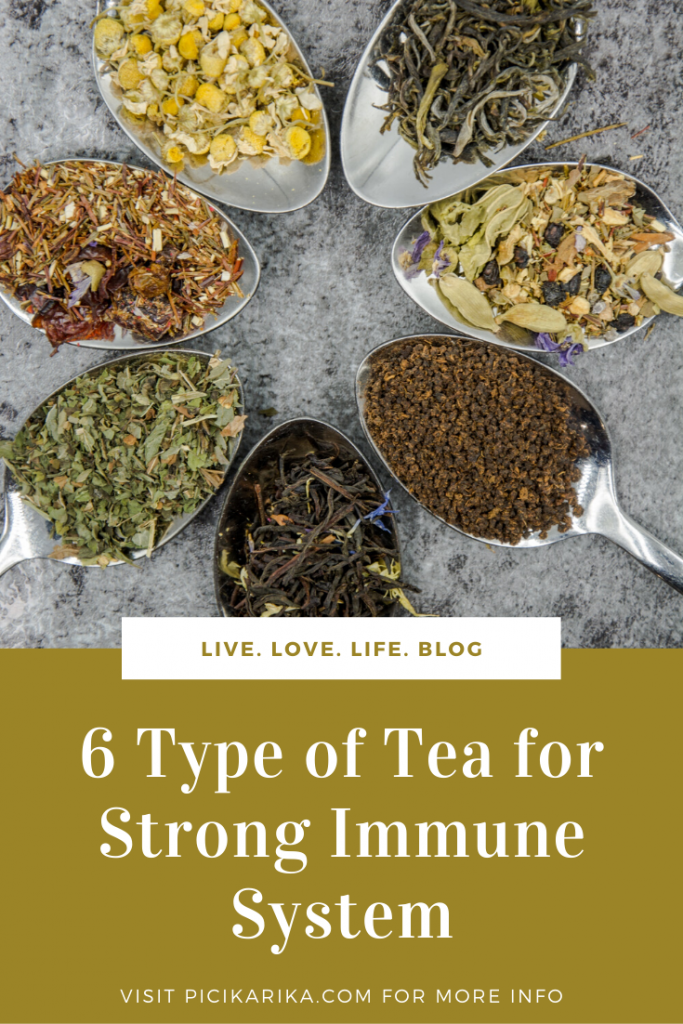Proven action when it comes to strengthening the body’s resistance, have nettle tea, chamomile, green tea, but also sage, elderflower tea, thyme.
How to stay healthy in times of colds and viral infections?


Experts say: Get some sleep, eat healthy, exercise, drink fresh juices from seasonal fruits and vegetables, relieve stress by walking in nature or meditating, and of course, drink plenty of fluids.
Aside from stimulating circulation and relaxing the body, warm drinks from medicinal herbs are a true health saver. Proven action when it comes to boosting the body’s resistance, have nettle tea, chamomile, and green tea. But one should not forget the sage, elderflower, and thyme.
Nettle Tea
It has been used as a medicinal plant since ancient times. Even the ancient Greeks used her leaves for massage in rheumatic pain. It is rich in calcium, potassium, iron, phosphorus, as well as vitamins A and C. It also contains flavonoids that have antioxidant properties.
In addition to boosting immunity, nettle tea has an anti-inflammatory effect and is also beneficial in anemia, allergies, liver, kidney, and lung diseases. Nettle has also been shown to lower blood pressure and stimulate digestion, and can help with hair loss.
It speeds up metabolism and cleanses the blood, and thanks to the richness of calcium, it contributes to the health of teeth and bones.
Chamomile Tea
Like Nettle tea, it has long been used in folk medicine. It is rich in antioxidants, and by consuming this mild tea every day we improve immunity, reduce stress, protect the heart.
Chamomile contains apigenin, which belongs to flavonoids and helps prevent malignancies. Inhalation with this tea relieves the symptoms of inflamed sinuses.
Green Tea
This tea has a valuable effect on immunity due to the amino acids present, which increase the capacity of T cells, responsible for defending the body against harmful microorganisms.
Due to the abundance of mineral salts, green tea also promotes the release of toxins, which also has a beneficial effect on immunity. In addition to this property, numerous studies have confirmed other health benefits of green tea. Unlike coffee, which raises cholesterol, green tea lowers it.
It contains significantly less caffeine than coffee, but enough to wake us up and increase our concentration. It is a valuable source of antioxidants, so it is thought to protect against malignancies. It is also useful in combating unwanted pounds. It is believed that for their leanness, Japanese women can thank this traditional beverage, as well as their diet, with plenty of fish and seafood.
Sage Tea
The ancient Romans greatly appreciated this plant, so it is not surprising that its Latin name is Salvia officinalis, from the verb salvare, which means to save, to cure. Sage is a broad-spectrum natural antibiotic.
It is used to strengthen the body, especially nerves, to cleanse the blood and against colds, flu, hoarseness. It cleanses the liver and regulates sweating, so it is useful for menopausal heat waves. Recent research confirms that sage tea is valuable in the prevention of Alzheimer’s disease.
Elderflower Tea
Strongly boosts immunity. It is used in viral infections, coughs, rheumatic diseases. Elderflower tea is also beneficial for urinary problems and, thanks to its high potassium content, protects the heart. It promotes detoxification and sweating, thereby lowering body temperature. It also has a mild laxative effect.
For tea only flowers (leaves are poisonous) which are rich in vitamins, mostly C and B and A, are used for tea. Of the minerals, the elderflower contains a large percentage of iron, sodium, calcium, potassium, and selenium, which is otherwise very low in other plants. It also contains flavonoids as well as an immune system-activating sambucol.
It is effective against the flu virus and is thought to shorten the disease period by 3-4 days. Tea is prepared by pouring on 4 teaspoons of dried flowers a half-liter of boiled water, let it sit for 10 minutes and process. It is drunk during the day sip by sip.
Thyme Tea
The thyme plant (thyme) is extremely rich in vitamin C, which has a beneficial effect on immunity. What makes the thyme especially medicinal is its essential oils, effective in fighting bacteria (staphylococci, colic …) and fungi.
It is an excellent source of vitamins C and A, as well as iron, copper, riboflavin, calcium, phosphorus, zinc. It is known as a cough medicine because it cleanses the airways and relieves symptoms of bronchitis. It also accelerates the maturation of coughs and helps cough out. It also reduces sore throat. This aromatic tea works both soothing and relaxing.




Generally I don’t read article on blogs, however
I would like to say that this write-up very pressured me to check out and do so!
Your writing taste has been amazed me. Thank you, very nice post.
Thank you